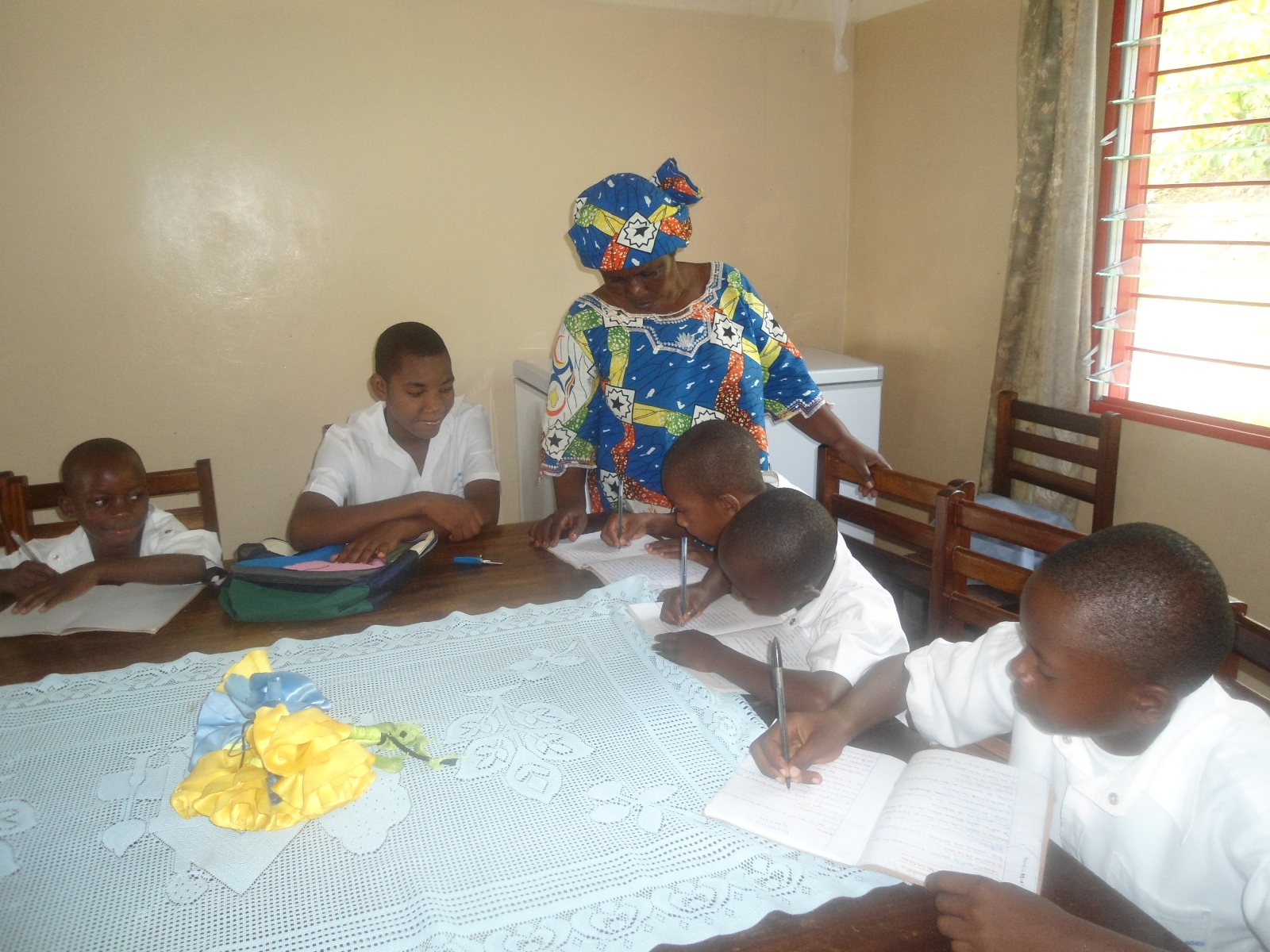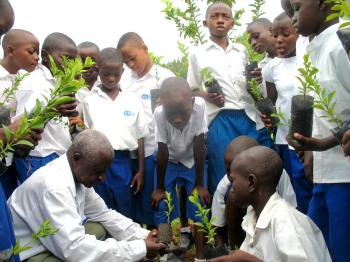A tough existence for many children in this conflict-ridden region

SOS mother doing homework with the children in her care. (photo: SOS archives)
The town of Uvira is located on the northern banks of Lake Tanganyika in Sud Kivu province of the Democratic Republic of Congo. With the Burundian capital Bujumbura just on the other side of the lake, and waterway access to Tanzania as well as Zambia, Uvira has long been in a strategic location. This also means that it has been the centre and birthplace of numerous conflicts.
The mountainous region is rich in mineral reserves and has proven an ideal base for militias and armed groups. Though more peaceful times have returned to the Democratic Republic of Congo following years of brutal war, Sud Kivu province remains a dangerous and unstable area. Too often the disbanding of one armed group has been instantly followed by the formation of another.
In a region that has seen so much misery and so many conflicts, women and children are often the greatest victims. The heinous use of rape as a weapon of war, which this region has seen too much of, has resulted in large numbers of children born of rape. These children are frequently excluded from full participation in their family and community.
General poverty and the lack of adequate health and education services mean that thousands of children are undernourished and without access to schooling. The number of orphans is very high, and often these children have no choice but to live unsafe lives on the streets, where they risk falling victim to violence and sexual abuse.
In addition, HIV/AIDS and other health threats affect a lot of families and make it difficult for them to provide and care for their children. True development in all areas of social infrastructure is desperately needed before the high mortality rate of children under five can be reduced, and the region can become a safer place for children to grow up.
From an emergency care facility to a full scale SOS Children’s Village
SOS Children’s Village Uvira started out as an emergency care programme for children in the aftermath of the heavy conflicts of 1996. However, it became evident that the need for care was on the rise, and measures were taken to turn it into a permanent programme. The focus of our organisation has increasingly turned to strengthening families in danger of breaking apart while still seeking the best solution for those children without anyone to care for them. Working in Uvira is full of challenges due to the lack of infrastructure. This means that, for example, the supply of power and water remains inconsistent.
However, SOS Children’s Villages continues to fight for the rights and to try to improve the living conditions of vulnerable children and families while contributing to the region's infrastructure in areas such as health and education.
What we do in Uvira

In Uvira, we strengthen families and provide children with a loving home. Together with local partners, our social centre runs a programme that reaches out to more than 400 children. Some families are given food, some are helped to set up vegetable gardens so they can grow their own supplies, and others are supported to acquire skills which will enable them to take care of their families and become self-sufficient.
150 children without anyone to care for them can find a loving home in an SOS family. Here, they benefit from safe surroundings and access to school and experience what it means to just be a child and build happy memories.
Our organisation also runs a kindergarten and a primary school, which not only provide a good learning environment for children from SOS families but also for hundreds of children from the surrounding community. The foundation for the positive future development of the region may well lie in the education of the children of today.
When children in the care of SOS Children’s Villages become young adults, they usually move on to the SOS Youth Programmes, where they can take their first steps towards independence while still receiving support and guidance. An individual development plan is carefully arranged for all children and young people in our care.
An SOS Medical Centre operates twelve kilometres outside of Uvira in an area dominated by poverty. Together with other health facilities in the area, the medical centre is deeply involved in campaigns and testing that may help to prevent the spread of HIV/AIDS. General treatment and laboratory tests are also part of the daily routine at the medical centre, and women are provided with a place where they can give birth to their children with medical staff present.